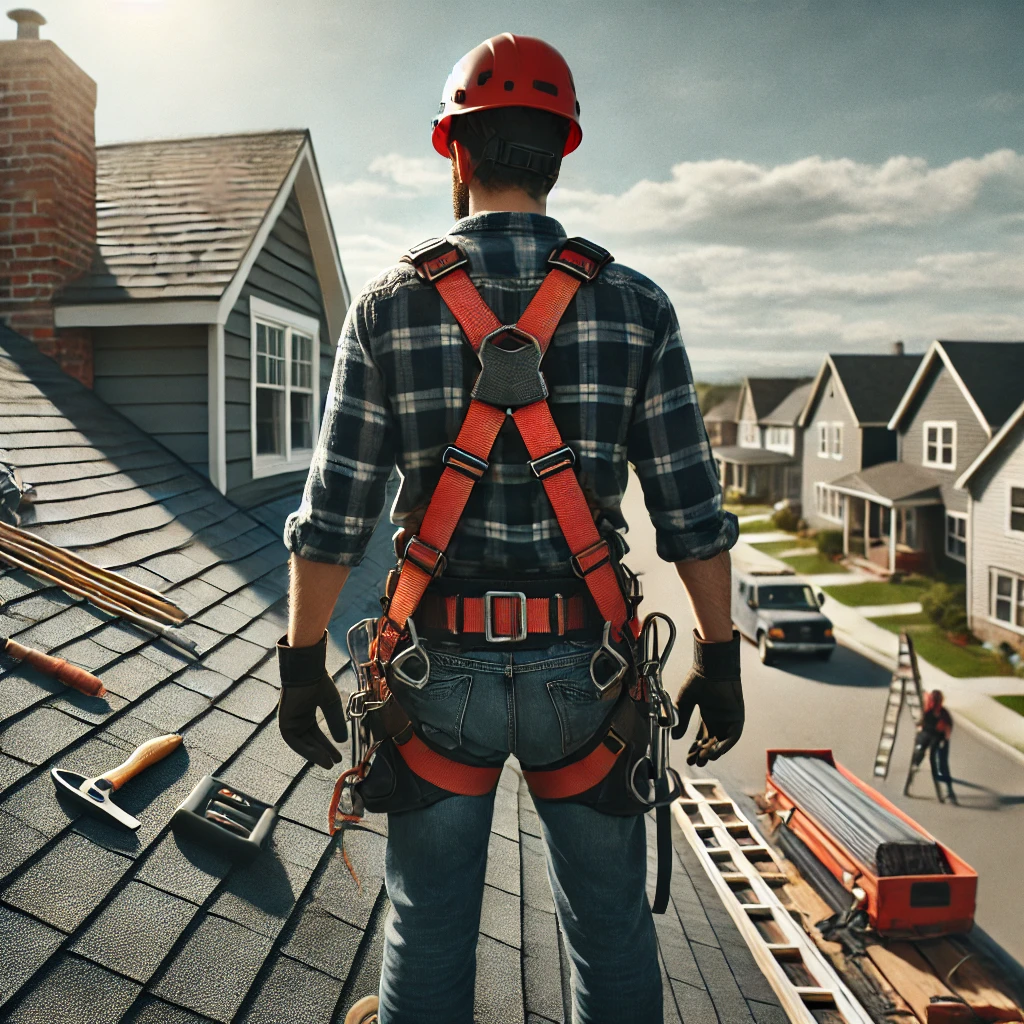
Running a roofing business means working in one of the most demanding trades in construction. From climbing ladders to handling equipment in unpredictable weather, every day brings risks that can impact your crew’s safety and your business’s future. Insurance isn’t just a requirement—it’s a strategic asset. And when paired with a strong safety culture, it becomes one of the most powerful tools you have to build trust, protect your people, and stand out in a crowded field.
Understanding the Stakes: Why Safety and Insurance Matter
Roofing consistently ranks among the most hazardous jobs in construction. Falls from heights are the leading cause of serious injuries and fatalities. Add to that equipment mishaps, electrical hazards, and weather challenges, and the risks become very real—not just for workers, but for your reputation and financial stability.
Without the right coverage, a single incident could lead to costly claims, lawsuits, or project delays. But when safety and insurance work together, you create a clear signal to your team, your clients, and the market: you take responsibility seriously.
Key Safety Risks in Roofing
- Falls from ladders or roofs
- Improper use or failure of equipment
- Sudden weather conditions
- Electrical contact with overhead lines
- Slips and trips on uneven or wet surfaces
Recognizing these hazards is step one. Proactively addressing them—through both training and coverage—is what sets leaders apart.
Essential Insurance Coverage for Roofing Contractors
Building a strong policy foundation helps protect your crew, equipment, and business from unexpected hits:
Workers’ Compensation Insurance
Covers medical costs and lost wages when someone is injured on the job. It protects your employees—and your business. In our home state of ohio, this is purchased through the BWC. We can help fill in the gaps in the state’s coverage with a special endorsement on your policies.
General Liability Insurance
Essential for claims involving injury to others or damage to someone else’s property. This is the backbone of most contractor policies.
Commercial Vehicle Insurance
Covers the trucks and vans you rely on every day, including any damage, liability, or theft while in use for work.
Equipment Coverage
If a key tool breaks or is stolen, this policy helps you replace it quickly so projects can keep moving.
Umbrella Policies
Provides additional liability protection beyond your general liability or auto limits—critical for larger projects or high-exposure jobs.
For roofing contractors using digital invoices or handling customer data, adding Cyber Liability Insurance is a smart move.
Why Safety-First Insurance Sets You Apart
1. Strong Risk Management = Fewer Claims
A safe crew is a confident, capable crew. When incidents are rare, premiums stay manageable, and your reputation remains intact.
2. Clients Take Notice
When you can clearly explain how your safety program and insurance coverage protect their property and timeline, it builds trust—and gives you a competitive edge.
3. Differentiation in a Crowded Market
Many roofing companies look the same from the outside. A visible commitment to crew safety, paired with strong protection, helps you stand out.
4. Long-Term Business Continuity
Even with the best planning, things happen. The right insurance lets you bounce back fast—avoiding long delays or brand damage.
Strengthen Your Safety Culture with Simple Steps
- Offer job-specific safety training regularly
- Use and enforce PPE on every jobsite
- Conduct pre-project safety inspections
- Stay current on OSHA guidelines
- Keep detailed records of safety practices and incidents
This not only protects your people—it tells insurers and clients you mean business when it comes to risk.
Insurance: More Than Protection—A Business Tool
Insurance isn’t just a legal formality. When integrated with your safety strategy, it becomes a real differentiator. A well-designed policy gives you the freedom to focus on growth, not just damage control.
Curious how your current coverage stacks up? Want expert advice tailored to your roofing business? Let’s talk about your options.
A Real Example: Safety Pays Off
One of our roofing clients faced a serious fall incident on-site. Thanks to their proactive training and full workers’ comp coverage, the injured worker received care immediately. The claim was handled efficiently. Most importantly, their transparency and planning reassured the client—who later hired them again for a larger project.
Final Thoughts
If you’re running a roofing business, safety and insurance can’t be afterthoughts. They’re the foundation of a reputation that attracts clients, earns referrals, and keeps your operation strong—even when challenges hit.
Start today by requesting a custom quote or scheduling time to connect with an expert who understands roofing. Protect your crew, your clients, and your business—because doing it right sets you apart.
FAQs
1. What insurance policies do I need as a roofer?
At minimum: workers’ comp, general liability, commercial auto, and equipment coverage. Umbrella and cyber insurance are smart additions for growing businesses.
2. How does a strong safety program affect insurance rates?
Fewer claims = better rates and access to more competitive carriers. Insurers reward proactive risk management.
3. Can insurance really help me win more business?
Absolutely. Clients want to know you’re protected. Strong coverage plus documented safety practices instill confidence.
4. What’s the benefit of an umbrella policy?
It gives you extra protection above your standard limits—critical when facing large claims or working on big projects.
5. How can I get advice specific to my roofing business?
Start a conversation with someone who understands your trade, or request a tailored quote online.
